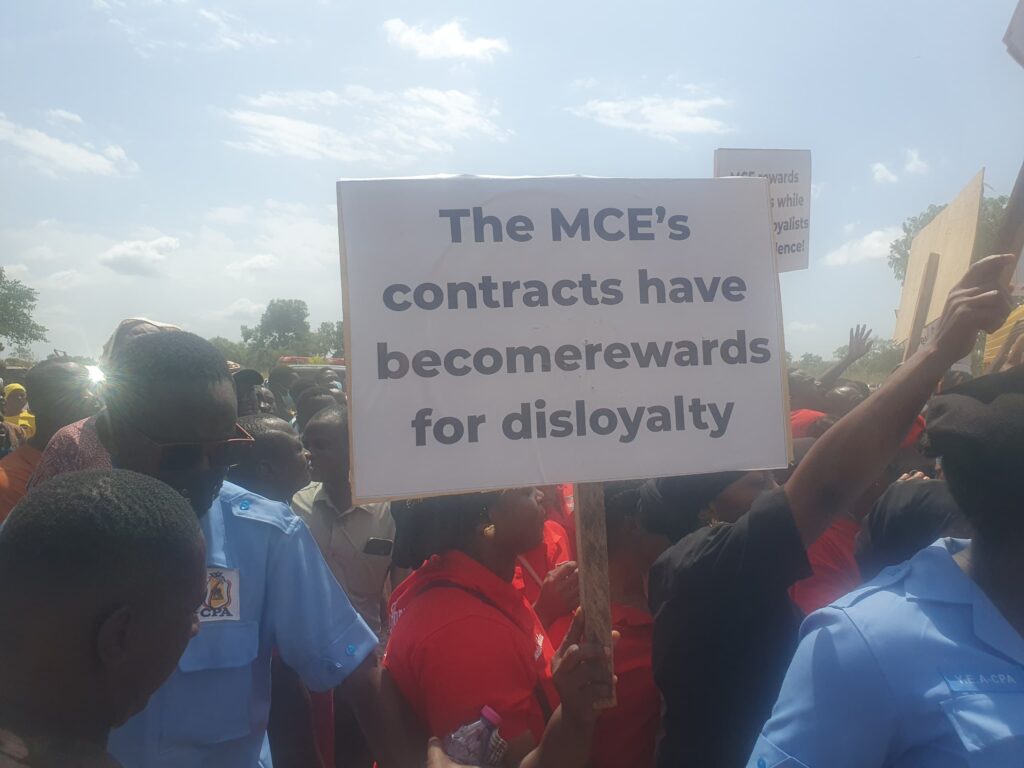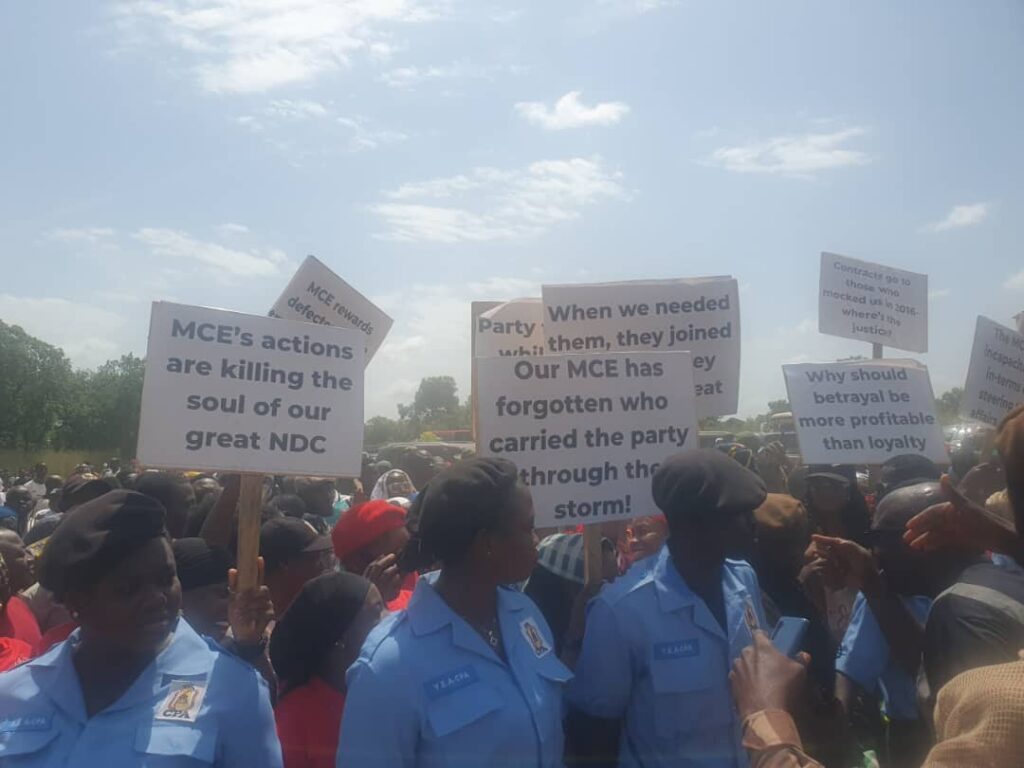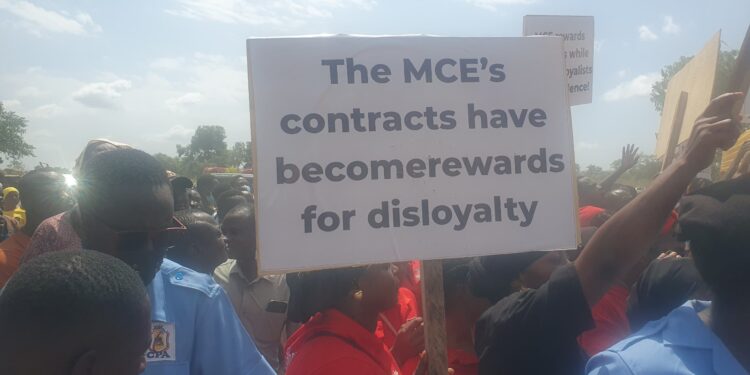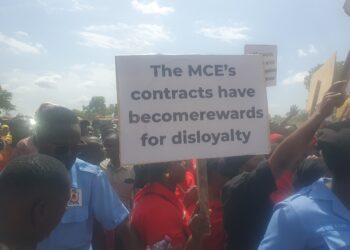By: Johannes Jafo Akunatu
Savannah’s heartland has recently experienced a surge of youthful conviction in Damongo. The coalition of the United NDC Youth, consisting of dynamic, assertive voices, protested not as a result of tricks or external influence but out of a deep-seated frustration with the inadequacy of the leadership and being taken for granted. Their message communicated was very clear: the youth deserves better.

The protest aimed at confronting the conduct and the performance of the MCE of the West Gonja Municipality, not only portrayed the public’s civic responsibility but also made a strong call for transparent and accountable governance. But, in an astonishing twist of events, their sincere requests were misinterpreted and distorted even to the topmost levels of the country’s political authority.
According to reports, the Regional Minister for Savannah Region allegedly informed the President that the youth protest was centered around the demand for a share of the District Assembly Common Fund and the contracts related to it. Such a claim not only undermines the intelligence of the youth but also strips the protest of its moral essence and paints committed citizens opportunists.
During the President’s courtesy call to the Yagbon Palace, the young people respectfully presented a five page petition to the president—a document that expressed the dissatisfaction of the entire municipality. It laid bare the hardships and neglects of the grass roots who put in extra effort for the victory in the 2024 elections, how job opportunities are being given to outside people while the loyal youths who are also supporters and have spent their time, energy and resources are being left out. The petition statement confirmed the bitter reality: the social contract between the leaders and the grassroots is becoming weaker, and by that, it issued a warning that the ongoing neglect might soon demoralize and thus, fracture the party’s unity and strength in the run-up to the 2028 elections.
The youth did not demand contracts or funds at any point in their petition. On the contrary, they advocated for integrity in leadership, inclusiveness in decision-making, and just distribution of developmental initiatives.
However, instead of considering the complaints, some of the officials in power preferred to fabricate the story. A moment that could have been very significant for self-examination was turned into a tale of greed—a political cover-up for incompetence.
More disappointing is, some section of the media were the main culprits who did not even care to question the distorted version of events but rather reinforced it. The profession of journalism, in its most perfect form, serves as the democratic compass—that is, to reveal the truth and not to hide it. But, in this particular instance, a lot of the media outlets did not bother to put up the case for the truth, but rather went for the easy way out of feeding the public with sensational headlines.
Although the President’s subsequent explanation of the Common Fund was presumably the necessary context, it nevertheless ought not to have been regarded as a reply to the complaints that were made. The youth knew exactly what they were fighting for. Their demonstration was not against protocol—it was against being overlooked, being treated with disdain, and the gradual erosion of accountability at the local government level.
To say that their protest was limited to a fight over common funds and contracts is not only wrong but also very much an insult to the whole idea of civic engagement. The United NDC Youth marched not for personal interests but to remind the system of its obligation to the people.
And their message is still very strong:
That leadership has to serve, not repress.
That governance has to show the will of the people, not the comfort of the few.
That the youth in the Damongo constituency will not anymore exchange their voices for patronage or silence.
The real story behind their protest is not that of greed, it’s the story of grit. It’s about a whole generation that is making a demand to the power holders that they should never forget where the power truly comes from, and that’s the people.
Their protest discloses a profound reality: if authorities manipulate stories, they destroy confidence. If the press blows up those manipulations uncritically, it brings upon itself its failure. And if the public ceases to seek clarification, autocracy prevails by unspoken consent.
When the dust of the protest settles, only one truth remains and that is, the United NDC Youth have brought back the spirit which had been sleeping in our civic life for a long time: the courage to tell the truth to people in power.
And that, above all, is the very essence of our democracy.

















